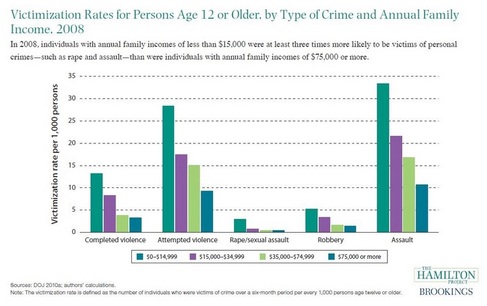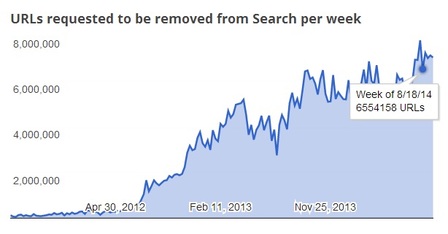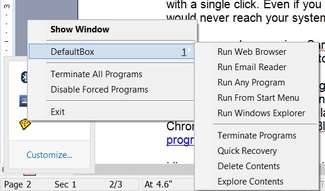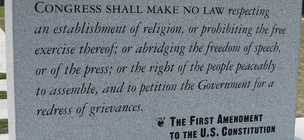Menu
Privacy Weeklies |

Why do lawyers have a monopoly on the legal system? It certainly doesn't serve the poor, who are disproportionately the victims of crime and the ones arrested for committing crimes. (Brookings Institution Hamilton Project, April 28, 2014) Forbes' George Leef explains in a September 18, 2014, article.
Stanford Law School professors Deborah Rhode and Lucy Buford Ricca state in a May 2014 Fordham Law Review symposium that nonlawyers outperform lawyers in the United Kingdom in terms of results and client satisfaction on such matters as welfare benefits, housing, and employment. Similar results have been found in studies in the U.S. on performance of lawyers and nonlawyer specialists in bankruptcy and administrative agency hearings. (read more) |

Trademark holders are overreaching in their takedown requests and using them to censor opinions and speakers they disagree with. Electronic Frontier Foundation's Parker Higgins explains in a September 17, 2014, article. They may also be trying to get an edge in the market by discouraging competition. A baked-goods company targeted people using the term "derby pie," which is a common dessert in the South. Denied by WordPress. (read more)
|

These days there are so many data breaches you have to assume your personal information has been compromised. Sandboxie, AdBlock Plus, and Web of Trust substantially decrease your chances of becoming a data-theft victim. (read more)
|
|
A company in the UK has sued Google for theft of trade secrets and backs up its claims by pointing to notes left by Google staff in returned copies of its own documents.
|
|
Organizations have little incentive to invest in authentication systems that offer better protection from theft than the nearly porous password-based security we rely on today.
|
|
Big money has become such an integral part of politics that office holders and would-be office holders can accept millions of dollars from special interests without any taint of corruption. Is government by the highest bidder what our forefathers had in mind?
|
|
Software will only become more important as the technology is applied to nearly every aspect of our daily lives: from home and vehicle monitoring and control, to commerce, to personal and national security. Legal questions pertaining to software will only become thornier. Establishing a solid foundation for software legal protections will enable innovation and promote the arts and sciences in ways that have a positive impact on everyone's life.
|
Have 'money addicts' taken over our political system? (part one of two) |
|
Money is now recognized as an addictive substance. In an article published in the New York Times on January 19, 2014, Sam Polk, a former hedge fund trader, described his money addiction and how he overcame it. The rules of Wall Street make it possible for money addicts to feed their habit.
|
Corporate ownership of the U.S. political process (part two of two) |
|
Only by dismantling the plutocracy that has resulted from the undue influence exerted by corporations over the political system will it be possible to ensure that "government of the people, by the people, for the people shall not perish from the earth."
|
|
Online tracking is here to stay, but the EFF's Privacy Badger add-on for Chrome and Firefox can help keep the commercial trackers at bay.
|
|
The court's ruling in Alice Corp. v. CLS Bank International finds no "innovative concept" in a system for hedging risk in financial transactions based on a shadow intermediary account that determines each party's likelihood of nonpayment.
|
Reclaim your personal information
|
Software patentability
|


